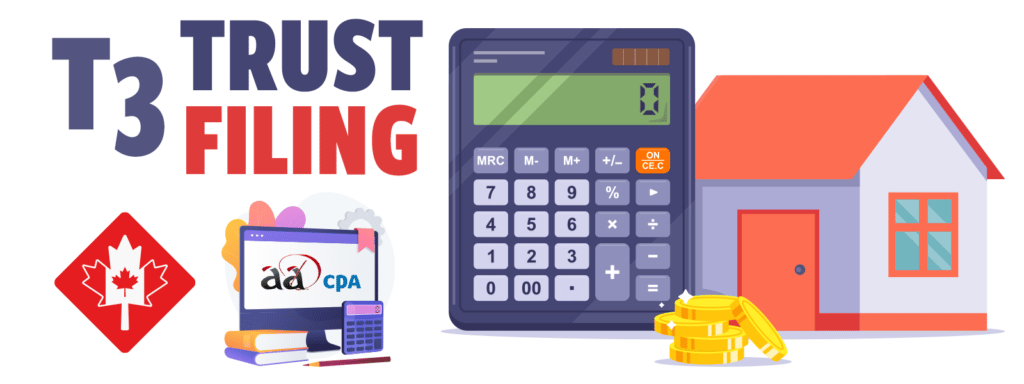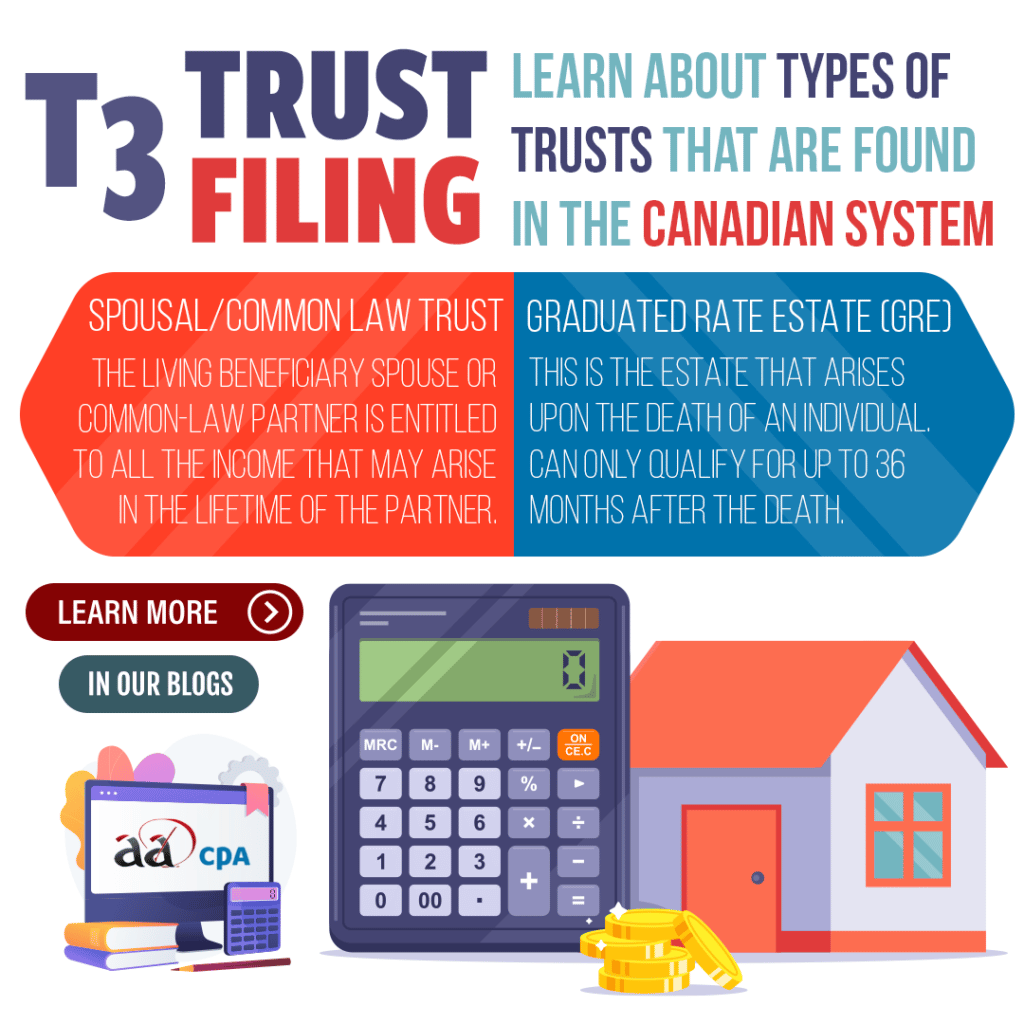
Breaking Down the Types of Trusts Available in Canada
When filing a T3 trust return, it is important to know about the types of trusts available and the conditions of each. Some trusts may not require a T3 return and others may have specific criterias in order to qualify for special considerations. Continue reading to find out about different types of trusts you may come across while living in Canada.
The Graduated Rate Estate (GRE) as Types of Trusts
This is the estate that arises after the death of an individual. To qualify as a GRE, no more than 36 months can be passed since the individual’s death. Once the 36 months have passed, the estate will not be considered a graduated rate estate. Additionally, the trust must be a testamentary trust within these 36 months. The trust must meet all the conditions listed above in order to qualify as a graduated rate estate.
Spousal or Common-Law Partner Trust
A spousal or common-law partner trust includes a testamentary trust and an inter vivos trust. This ensures that the living beneficiary spouse or common-law partner is entitled to all the income that may arise during the lifetime of their spouse or partner. This spouse or partner is the only person who can receive or use any income or capital of the trust during their lifetime.
Personal Trusts
Personal trusts are either a graduated rate esetate or a trust that has no beneficial interest acquired for consideration. This consideration would be payable directly or even indirectly to the trust or a person or partnership that made a contribution to the trust by transferring, assigning or disposing a property. Since 2016, only graduated rate estates are automatically qualified as personal trusts without considering the circumstances in which the beneficial interest in the trust was acquired.
Communal Organizations as Types of Trusts
If the following conditions are met, then it is deemed to be a trust:
- There are members who live and work together.
- They follow practices, beliefs and operate per the principles of the religious organization it is part of.
- Members are not permitted to own property in their own right.
- Members are required to devote their working lives to the congregational activities.
- Conducts one or more businesses directly or owns all the shares of the capital stock of a corporation.
- Alternatively every interest is in a trust or other person that carries on the business in supporting or sustaining its members or those of another congregation.
This communal organization would pay tax as if it is an inter vivos trust but can also allocate its income to the beneficaries of the trust instead.
Employee Trust
This is a trust that is established under which an employer makes payments to a trustee in trust only for the benefit of its employees. The trustee needs to ensure the arrangement qualifies as a trust on the first T3 return and the employer can deduct contributions to the plan if it is filed less than 90 days after the end of its first tax year. In order to maintain its status as an employee trust, the trust has to allocate all non-business income and employer contributions for that year each year. Regardless, business income cannot be allocated and will be taxed in the trust. An employee trust has to file a T3 return if the plan or trust has tax payable, has a taxable gain or has disposed of capital property.
If you’d like to know more about the types of trusts, visit the CRA’s website and read into the section regarding their T3 Trust Guide by clicking here.

